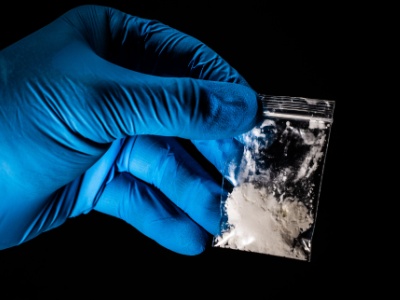Recent Blog Posts
What Are the Penalties for Robbery or Carjacking in Wisconsin?
 There are a variety of different ways to classify crimes. For example, property crimes generally involve accusations of theft or claims that someone has taken or destroyed property belonging to someone else. Violent crimes involve accusations that a person has caused harm to others or threatened to do so. However, some offenses may fall under more than one category. Robbery is one such crime, since it involves both the theft of property and the use or threat of violence.
There are a variety of different ways to classify crimes. For example, property crimes generally involve accusations of theft or claims that someone has taken or destroyed property belonging to someone else. Violent crimes involve accusations that a person has caused harm to others or threatened to do so. However, some offenses may fall under more than one category. Robbery is one such crime, since it involves both the theft of property and the use or threat of violence.
Anyone who has been accused of committing robbery or the related offense of carjacking will need to understand the potential penalties they may face and their options for defense. An experienced attorney can provide invaluable guidance in these situations, representing those who have been accused and helping them navigate through the complexities of their cases.
What Is Robbery?
Robbery is a serious crime in Wisconsin. It is defined under state law as the act of taking property from someone through force. This crime generally involves the use of physical strength to overcome resistance or the threat of using force or inflicting harm in order to take property directly from another person against their will.
6 Tips for Sharing Child Custody Effectively
 When parents go through a divorce, some of the most crucial issues they will need to address will be related to child custody. Most of the time, parents will have shared or joint custody of their kids, giving them both the right to be involved in major parenting decisions and ensuring that they will each have sufficient time with their children. However, sharing child custody is not just about adhering to a legal agreement; it is about ensuring that children's best interests are at the heart of every decision made by parents.
When parents go through a divorce, some of the most crucial issues they will need to address will be related to child custody. Most of the time, parents will have shared or joint custody of their kids, giving them both the right to be involved in major parenting decisions and ensuring that they will each have sufficient time with their children. However, sharing child custody is not just about adhering to a legal agreement; it is about ensuring that children's best interests are at the heart of every decision made by parents.
Working together amicably can be challenging for divorced parents, but with the right approach, they can create a positive environment for their children. By emphasizing cooperation and prioritizing children's needs, parents can make sure their children’s ongoing needs will be met, and they can promote healthy relationships and provide children with the tools for success. Representation from an experienced attorney can ensure that a parenting plan will be put in place that will provide for children’s best interests.
How Can University Students Defend Against Expulsion?
 Disciplinary proceedings that could potentially lead to expulsion can be a daunting experience for any university student. Higher education is pivotal to pursuing many opportunities and career goals, and expulsion could threaten a person’s future. Understanding how to navigate such a situation is crucial. With legal representation from an experienced attorney, a student can defend against expulsion and ensure that his or her rights and interests are upheld throughout the disciplinary process.
Disciplinary proceedings that could potentially lead to expulsion can be a daunting experience for any university student. Higher education is pivotal to pursuing many opportunities and career goals, and expulsion could threaten a person’s future. Understanding how to navigate such a situation is crucial. With legal representation from an experienced attorney, a student can defend against expulsion and ensure that his or her rights and interests are upheld throughout the disciplinary process.
Understanding University Disciplinary Hearings
Disciplinary hearings may be conducted to address alleged violations of campus policies or codes of conduct. These proceedings can be complex and intimidating, with outcomes that can significantly impact a student's academic and professional future. Some common reasons why students may face disciplinary action include:
How Does Wisconsin Law Address Organized Retail Crime?
 In recent years, “organized retail crime” has been an area of concern for businesses and police agencies throughout the United States. This form of theft usually involves coordinated efforts by multiple people to steal from stores and resell stolen merchandise, often on the internet. The state of Wisconsin has taken steps to address this crime, and people who are accused of organized retail theft may face felony charges, even in situations involving small amounts of money or property. Following an arrest for retail theft or other related crimes, it is crucial to have representation from an experienced attorney who can help determine the best defense strategy for your case.
In recent years, “organized retail crime” has been an area of concern for businesses and police agencies throughout the United States. This form of theft usually involves coordinated efforts by multiple people to steal from stores and resell stolen merchandise, often on the internet. The state of Wisconsin has taken steps to address this crime, and people who are accused of organized retail theft may face felony charges, even in situations involving small amounts of money or property. Following an arrest for retail theft or other related crimes, it is crucial to have representation from an experienced attorney who can help determine the best defense strategy for your case.
Defining Organized Retail Crime
Organized retail crime (ORC) involves two or more people who work together to steal retail merchandise in large amounts. This offense is often more serious than shoplifting, since it may involve complex operations in which stolen goods are sold through online marketplaces or other methods.
3 Examples of How Child Support May Be Calculated in Wisconsin
 For parents who are involved in family law cases, child support is likely to be a crucial issue that will need to be addressed. Child support ensures that children’s ongoing needs will be met. Payments made by one parent to the other may be used to cover regular expenses, including food and clothing, as well as housing expenses such as rent and utilities. Additional expenses may also be addressed, such as those related to education, activities, medical care, and childcare that will allow a parent to maintain employment.
For parents who are involved in family law cases, child support is likely to be a crucial issue that will need to be addressed. Child support ensures that children’s ongoing needs will be met. Payments made by one parent to the other may be used to cover regular expenses, including food and clothing, as well as housing expenses such as rent and utilities. Additional expenses may also be addressed, such as those related to education, activities, medical care, and childcare that will allow a parent to maintain employment.
Understanding the various factors that may affect child support is not always easy, and the assistance of an experienced attorney will often be necessary to ensure that the amount of payments will be calculated correctly. While Wisconsin law provides a fairly simple method of calculating child support based on a percentage of the paying parent’s income, there are many situations where additional calculations may be necessary.
How Is Child Support Calculated Under Wisconsin’s Guidelines?
 Issues related to child support often play a crucial role in family law cases. The costs of raising children can be significant, and they should be shared by both parents. For those who are going through a divorce or who need to resolve child custody issues as unmarried parents, it is important to understand the methods that will be used to calculate child support under the guidelines provided in Wisconsin law. An experienced attorney can assist with these matters, ensuring that all factors are considered correctly when establishing child support obligations.
Issues related to child support often play a crucial role in family law cases. The costs of raising children can be significant, and they should be shared by both parents. For those who are going through a divorce or who need to resolve child custody issues as unmarried parents, it is important to understand the methods that will be used to calculate child support under the guidelines provided in Wisconsin law. An experienced attorney can assist with these matters, ensuring that all factors are considered correctly when establishing child support obligations.
What Determines Child Support in Wisconsin?
Wisconsin's approach to child support is designed to ensure that both parents will contribute toward meeting their child’s needs based on their respective incomes. The State uses a percentage of income standard, which calculates support based on a percentage of the paying parent's gross income and the number of children being supported. In some cases, obligations may be calculated for both parents and offset based on the amount of physical placement (visitation) each parent will have with his or her child.
What Developers Need to Know About Business Improvement Districts in Milwaukee
 Developers of commercial real estate will need to address a variety of legal concerns during development projects, including zoning and land use laws, special use variances, entitlements, permits, and more. Additional requirements may apply for development projects in a Milwaukee Business Improvement District (BID). Navigating the complex issues related to BIDs can be a daunting task, especially for those who may not be familiar with the procedures followed by city government agencies and officials. Understanding the intricacies of these districts and how they interact with the city's Planning Commission is crucial for a development project's success. An experienced attorney can play a pivotal role in guiding developers through this process, ensuring that their projects align with local regulations and contribute positively to the designated areas.
Developers of commercial real estate will need to address a variety of legal concerns during development projects, including zoning and land use laws, special use variances, entitlements, permits, and more. Additional requirements may apply for development projects in a Milwaukee Business Improvement District (BID). Navigating the complex issues related to BIDs can be a daunting task, especially for those who may not be familiar with the procedures followed by city government agencies and officials. Understanding the intricacies of these districts and how they interact with the city's Planning Commission is crucial for a development project's success. An experienced attorney can play a pivotal role in guiding developers through this process, ensuring that their projects align with local regulations and contribute positively to the designated areas.
When Can a Person Be Charged With Drug Manufacturing in Wisconsin?

Offenses related to controlled substances are serious crimes in Wisconsin. The state has taken a stringent stance against the production and distribution of illegal drugs, and people who are charged with drug manufacturing may face serious penalties if they are convicted. If you have been charged with any offense related to manufacturing, producing, or distributing drugs or possessing drugs with the intent to manufacture or distribute them, you will need to understand your options for defense. In these situations, the guidance of a seasoned attorney can be crucial. A skilled lawyer can help you navigate the complexities of drug laws and provide you with robust legal representation.
What Constitutes Drug Manufacturing in Wisconsin?
In Wisconsin, drug manufacturing refers to the production, cultivation, or preparation of controlled substances. This may include many different types of activities, from growing marijuana to synthesizing chemicals for the creation of synthetic drugs. Manufacturing may also include packaging, repackaging, or labeling drugs for the purpose of selling or distributing them to others. The state's legal framework is designed to curb the supply of illegal drugs, reflecting a broader commitment to public health and safety.
How Can a Forensic Accountant Address Financial Issues in a Wisconsin Divorce?
 During the divorce process, it can be difficult to unravel the financial issues that affect spouses and gain a full understanding of the income they earn and the value of the assets they share. Financial disputes can often become a contentious part of divorce proceedings, and in these situations, enlisting the help of a forensic accountant can ensure that these issues will be addressed correctly. The assistance of a financial expert can help ensure that there will be a fair and transparent division of assets. An experienced attorney can work with a forensic accountant to ensure that all financial aspects of a divorce can be addressed and resolved.
During the divorce process, it can be difficult to unravel the financial issues that affect spouses and gain a full understanding of the income they earn and the value of the assets they share. Financial disputes can often become a contentious part of divorce proceedings, and in these situations, enlisting the help of a forensic accountant can ensure that these issues will be addressed correctly. The assistance of a financial expert can help ensure that there will be a fair and transparent division of assets. An experienced attorney can work with a forensic accountant to ensure that all financial aspects of a divorce can be addressed and resolved.
The Role of a Forensic Accountant in a Divorce
Forensic accountants are financial detectives who know how to analyze and interpret complex financial data. During a divorce, they can offer invaluable insights into the financial tapestry of the marriage, identifying hidden assets, valuing businesses, and clarifying income sources.
Is Violating a Restraining Order a Criminal Offense in Wisconsin?
 In Wisconsin, restraining orders are sometimes used in situations where a person is accused of engaging in domestic violence, child abuse, or stalking/harassment. While these orders are necessary in some cases to protect the safety of victims, they may be based on false accusations. However, regardless of whether a restraining order is legitimate or is used as a tactic to gain an advantage in a divorce or child custody case, it is important to follow orders put in place by the court. Violations could result in criminal charges and serious penalties.
In Wisconsin, restraining orders are sometimes used in situations where a person is accused of engaging in domestic violence, child abuse, or stalking/harassment. While these orders are necessary in some cases to protect the safety of victims, they may be based on false accusations. However, regardless of whether a restraining order is legitimate or is used as a tactic to gain an advantage in a divorce or child custody case, it is important to follow orders put in place by the court. Violations could result in criminal charges and serious penalties.
Understanding the legal ramifications of violating a restraining order is essential for anyone who has been accused of domestic violence or related offenses. An attorney with experience in criminal defense and family law can provide representation in these cases, helping address accusations of abuse and working to lift any restrictions put in place by the court.







